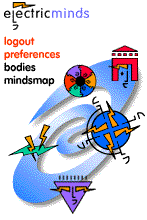
|

|
|
frankfurt - station rose
Documenta X Goes Online
This year Documenta 10 (dX) has Catherine David as its chief curator. An art historian, she worked as a curator for the Centre Georges Pompidou, and has studied literary science, linguistics, and art history. David's early statements about dX expressed disinterest in media art and the net. So, surfing the net in February, we were surprised to learn of dX's plans to set up an Internet site. The net is inescapable to anyone who deals seriously with culture/art/lifestyle these days. For an older, established organization like dX, that can mean a leap into the unknown. An Internet project curator had to be found, as well as sponsors, programmers, and the hardware. dX chose Simon Lamunière as curator. To quote the press release, "The dX site will feature projects by invited artists/teams, newsgroups, a survey of the dX program, and links to various sites, as well as to homepages of dX artists. A 'visual database' and a newsletter will be updated regularly during the exhibition." At the dX "virtual opening" in Kassel on March 21, David (who is French) spoke in English, though the conference is held in the German language. Her German assistant translated only when there was a question from the press. David didn't understand what was being said in between the questions. The amount of time between question, translation, response, and translation again, was laughably long, but throughout the confusion, David remained relentlessly arty. (Later we interviewed her alone, with far more intelligible results -- see below.) In the meantime we reflected on what Documenta meant to us, as we had been to the last two. Joseph Beuys used the 1987 show as a platform for social action and art in progress. The 1992 show documented postmodernism; we remembered Jenny Holzer's moving installation as one of the more avant-garde contributions. Station Rose had been doing online art performances for more than a year, and we were interested in other artists' integration of the net into their work. Leaving the '92 show, we didn't think of the Documenta as a place where new art and action were likely to happen.
"For me, technology is a possibility, not necessarily a place or something we have to emphasize, as we don't have to be afraid of media. You have a lot of inconsequential, cheap use of media in the moment. We are at the end of the century, and the net is a possible space," she says. David and Lamunière want the dX website to "emphasize a nonlinear structure" and to "make evident a deconstructivist strategy." The dX website is still in its inception phase, so be sure to keep an eye on it as it develops. It remains to be seen whether dX can remain culturally relevant without more aggressively tracking the state of the art in the online world.
(Photo of Catherine David by Gitty Darugar) |
spoon said: The art world still runs on art that weighs and takes space. The reproducibility of digital art makes it difficult to value. So, if you follow that old model of art as owned matter, it looks one way. If you follow the more recent non-proprietary model of art, then it is the experience rather than the ownership that matters. Following the experience side leads us into the making side. This is something I am covering in my current SF report, how we are all helping to erase the lines around who can make art, and whether or not it needs to be called art, if it's not "sold" in the same way. Most Active Topics: Topic 29 Gunafa Café Topic 28 Phosphoric Brain Massage | ||||
| |||||
Also in Frankfurt: ARS Electronica Center techno frankfurt goes east Goin' Gunafa in Germany | |||||
|
|
|
electric minds |
virtual community center |
world wide jam |
edge tech |
tomorrow |
conversations
Any questions? We have answers.
©1996, 1997 electric minds, all rights reserved worldwide.
|


 Catherine David, 41,
is the Documenta's first female curator. She claims to dislike
publicity (the media call her "the Sphinx" and
"Madonna"). David refuses to disclose the artists she has
chosen for the Kassel show. Curiously, she didn't hesitate to divulge
the Internet projects, so it would appear that she makes a distinction
between net projects and the more traditional exhibitions in Kassel.
David doesn't have a computer. She calls herself
"fax-addicted," and receives email messages or websites as
printouts.
Catherine David, 41,
is the Documenta's first female curator. She claims to dislike
publicity (the media call her "the Sphinx" and
"Madonna"). David refuses to disclose the artists she has
chosen for the Kassel show. Curiously, she didn't hesitate to divulge
the Internet projects, so it would appear that she makes a distinction
between net projects and the more traditional exhibitions in Kassel.
David doesn't have a computer. She calls herself
"fax-addicted," and receives email messages or websites as
printouts.
